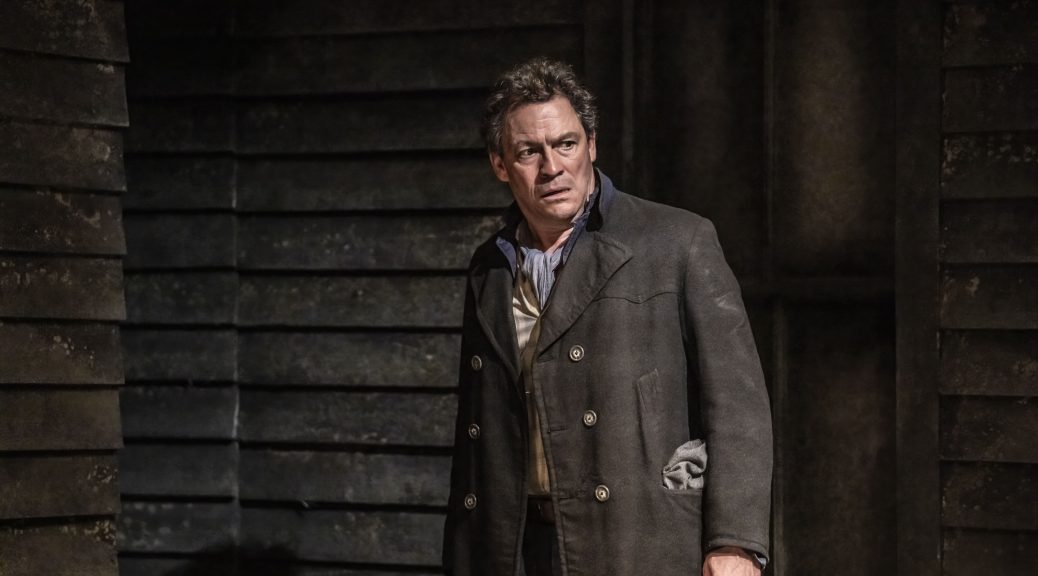 (4 / 5)
(4 / 5)
Starting with a bold statement – as any critic, I try not to go into a show with any bias or preemption. I firstly did not intend to go, for sadly, Dominic West. I’ve seen him in many things and never been the biggest of fans. But after seeing him and Callum Scott Howells speak about it on the TV, I decided to go. Boy, am I glad I did.
A View From The Bridge is a classic play by Arthur Miller. Known primarily for his work being based in America and its history, this play focuses on the flux of immigration to New York and the relationships built between new generation New Yorkers and their families back in their mother lands. West plays the main protagonist; the pillar of the family, all encompassing and ever loving to his orphaned niece from his wife’s side. When his wife’s stranger cousins come over to earn money, after starving and struggling in Italy, relationships become tense and feelings and thoughts arise from under the surface.
There is first to say that all the acting and general performances were perfection. Not a line was tripped over, not a pause where it was not meant to be; even slight slips like a flying piece of apple when cutting one to share is handled by the performers with grace and a natural nature. Their interactions feel real and wholesome, so when events begin to deteriorate, there are audible gasps and fear and sadness of the breakdown of these relationships. The shocking moments are really shocking and this is all made effective by the sense that we are breaking into the forth wall.
West is sublime. Yes, all the accents are a little hammed up and feel stereotypical of the New York Italian community during this era (1920-40’s) but when you get used to it, words are articulated with precision and West’s change from doting and loving uncle to something more jealous and sinister is a gradual change that is impeccably done. When Scott Howells joins, he is much more Italian and it, again, is a little dramatic but it works. When moments are serious, it feels real and feels serious and he commands the stage as much as West; which works brilliantly when they begin their intense dislike of one another.
Supporting cast and ensemble slot into their positions just as well and each command the stage in their own way at some point. The women, mainly Kate Fleetwood and Nia Towle, who, during this era are likely meant to be seen and not heard, are actually fiercely independent, which makes the break down and eventual end all the more heartbreaking. They both present completely different characters and sides of womanhood and in their own right take up space and perform with every inch of their souls.
There is something to say about some ensemble however; there are very small moments when a crowd is gathered and all of about 5 minutes at a time. It maybe happens twice, and while the ensemble do their jobs brilliantly, it did feel slightly unnecessary and as if they were not being used to their potential. If the play had just been the main characters, this would have worked just as well. Similarly, it was wonderful to see an un-microphoned performance; going back to the tradition of using skill and enunciation to perform. So when there is a brief interjection of sound to suggest someone calling outside the house, it’s a little strange and somewhat unnecessary, seeing as they had already been calling off stage successfully before this.
Over all, despite my reluctance, A View From The Bridge was utterly fantastic. Equally lovable and heartbreaking, Miller’s well known play is brought to life in what feels like a new and fresh way; natural and intense enough to feel as if we are intruding into real life.

